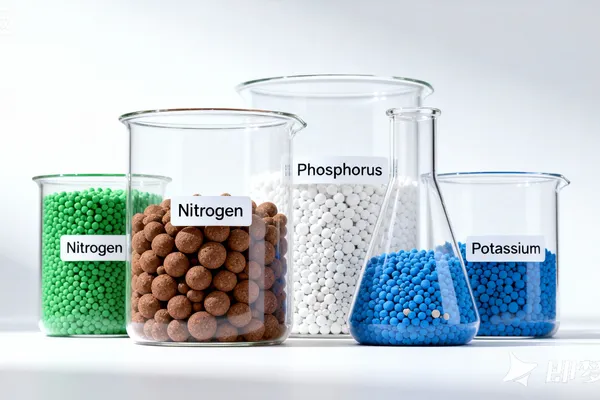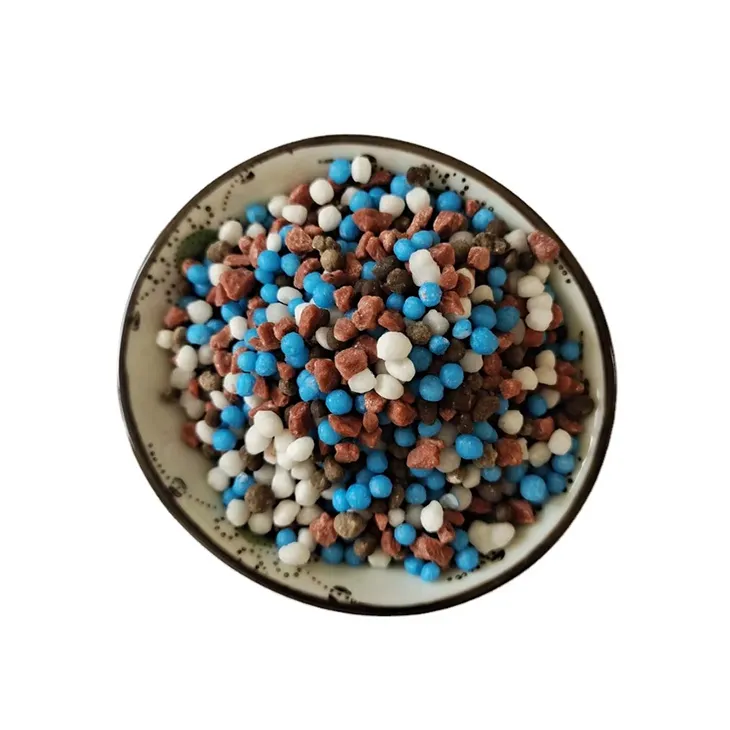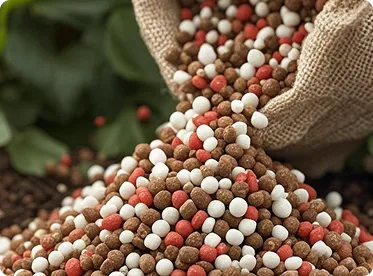一级标题
一级标题
Avoid your inquiry is delay response, please enter your WhatsApp/Skype along with the message, so we can contact you at the very first time.
We will reply you within 24 hours. If for urgent case, please add WhatsApp/WeChat:
Warning: Undefined variable $public in /www/wwwroot/lvfertilizer.com/wp-content/themes/hyhadmin/header.php on line 350
Warning: Trying to access array offset on value of type null in /www/wwwroot/lvfertilizer.com/wp-content/themes/hyhadmin/header.php on line 350
,. Or call
Warning: Undefined variable $public in /www/wwwroot/lvfertilizer.com/wp-content/themes/hyhadmin/header.php on line 350
Warning: Trying to access array offset on value of type null in /www/wwwroot/lvfertilizer.com/wp-content/themes/hyhadmin/header.php on line 350
directly.
Your land is not like anyone else’s. The soil has its own story. Your crops have specific needs. Your farm has unique yield goals.
So why would you use a generic, one-size-fits-all fertilizer?
Using a standard fertilizer is like giving every person the same medicine, no matter their illness. You might be giving your soil too much of one thing and not enough of another. This can lock up important nutrients, hurt your crops, and waste your money.
Every bag of the wrong fertilizer you spread is money out of your pocket. It is potential yield you will never see. It is another season of wondering if you could have done better. This problem grows over time. The soil gets more out of balance. Your yields may hit a plateau you can’t seem to break. You spend more time and money on passes across the field, trying to fix problems that the wrong fertilizer created.
Meanwhile, your neighbors might be using precision nutrient management to get ahead. They are feeding their crops exactly what they need, when they need it. They are getting more bushels per acre, and their soil is getting healthier each year. Environmental rules are also getting tighter. Using too much of the wrong nutrients can harm the world around us through leaching and runoff, which can lead to fines or restrictions.
There is a better way. It is a smarter way to feed your soil and your crops.
The solution is custom fertilizer blends.
This is not just another product. It is a completely different way of thinking about plant nutrition. It is a prescription nutrient management plan made just for your fields. By using science and precision, you give your crops the balanced diet they need to thrive. This leads to bigger yields, lower costs, and healthier soil for years to come.
As a professional fertilizer manufacturer with over 25 years of experience, we at Shandong Lvfeng Fertilizer Co., Ltd. have seen the power of this approach. We specialize in creating these custom crop-specific formulas. With our advanced production lines and commitment to quality, we provide the tools you need to unlock your farm’s true potential.
A custom fertilizer blend is a special mix of nutrients created just for your field. It is based on a soil test report and your specific crop needs. Instead of a generic ratio, you get the exact amount of nutrients your soil is missing.

What Are Custom Fertilizer Blends
Standard fertilizers, like NPK 15-15-15 or NPK 20-20-20, have a fixed ratio of Nitrogen (N), Phosphorus (P), and Potassium (K). They are mass-produced for average conditions.
A custom blended fertilizer, however, is a soil specific fertilizer blend. If your soil test shows you have enough Phosphorus but need a lot of Potassium and Sulfur (S), your blend will reflect that. You pay only for the nutrients you need. This makes it a key part of precision agriculture.
Custom blends come in different forms:
Standard fertilizers fall short when your fields are not “standard.” A custom blend makes sense when:
Common use cases include large row crops (custom fertilizer mix for corn, soybeans, wheat, cotton), as well as custom pasture fertilizer blends and programs for turf, lawns, and food plots.

Custom BB Fertilizer NPK
Creating a custom fertilizer formulation is a clear, scientific process.
A good blend is a balanced meal for your crop.
Lvfeng Fertilizer offers a wide range of products to create the perfect blend, from basic nitrogenous fertilizers to complex npk compound fertilizer with added micronutrients.
The science is clear. A soil test based fertilizer blend delivers powerful results.
The data proves it. Studies from around the world show the power of custom fertilizer programs.
Table 1 – Yield and profit impact of soil-test-based and customized blends vs conventional fertilization
| Study / region | Crop & system | “Custom” approach (how blends were tailored) | Yield impact vs conventional | Profit / economic impact |
| India – wheat on clay loam (Pharma Innovation Journal 2021) | Wheat (field experiment, India) | Soil-test-based recommendation (STBR) and customized NPKSZnB fertilizers vs blanket recommended dose (RDF) and farmer’s practice. | Grain yield under STBR: 41.97 q/ha vs 35.40 q/ha (RDF). That’s about +19% vs RDF. | Net return with STBR reached ₹51,089/ha vs ₹37,570/ha under RDF – roughly +36% higher profit vs RDF. |
| India – rice in rice-wheat system (Agronomy, 2021 STCR study) | Rice (rice–wheat rotation, India) | Soil Test Crop Response (STCR) targeted-yield fertilizer prescriptions vs state “recommended dose of fertilizer” (RDF). | STCR-based fertilizer plans produced ~20.2–32.3% higher rice yield than RDF. | STCR treatments consistently gave higher net returns and benefit-cost ratios than RDF. |
| Rwanda – commercial corn farm (TPS Lab case study 2025) | Maize under low fertility, erratic rainfall | Lab-designed customized fertility program based on soil testing, with targeted organic matter, N and P timing. | After adopting the custom program, the farmer reported a ≈30% yield increase in a single season vs previous standard practice. | Higher yield directly increased gross margin per hectare. |
This data shows that custom fertilizer blends consistently deliver 15-30% higher yields. More importantly, profits are even higher, with gains of 36-87% reported. This is precision nutrition in action.

Benefits of Custom Fertilizer Blends
The numbers on a fertilizer bag tell you the percentage of Nitrogen (N), Phosphate (P₂O₅), and Potash (K₂O). A standard npk 10 10 10 fertilizer is 10% of each.
A custom blend analysis might look like 18-5-22 + 5S + .1B. This means it contains:
This specific high potassium fertilizer blend was designed for a field that was low in K, S, and B, but already had good P levels.
When you work with a custom fertilizer supplier like Lvfeng Fertilizer, come prepared.
As a trusted npk fertilizer supplier with global reach, we handle all the logistics and provide clear labeling and safety information (SDS) for every blend.
Different plants have different diets.
Are custom blends more expensive? Not when you look at the fertilizer price per unit of nutrient. A fertilizer blend cost calculator will show you that you often save money by not paying for nutrients you don’t need.
One study in Texas showed that adjusting Nitrogen based on soil tests could save a farmer $30,000 to $132,000 on a 1,000-acre farm in one year.
Ready to stop guessing and start prescribing? Explore our high-quality water soluble fertilizer and BB fertilizer options that form the foundation of our custom blends.